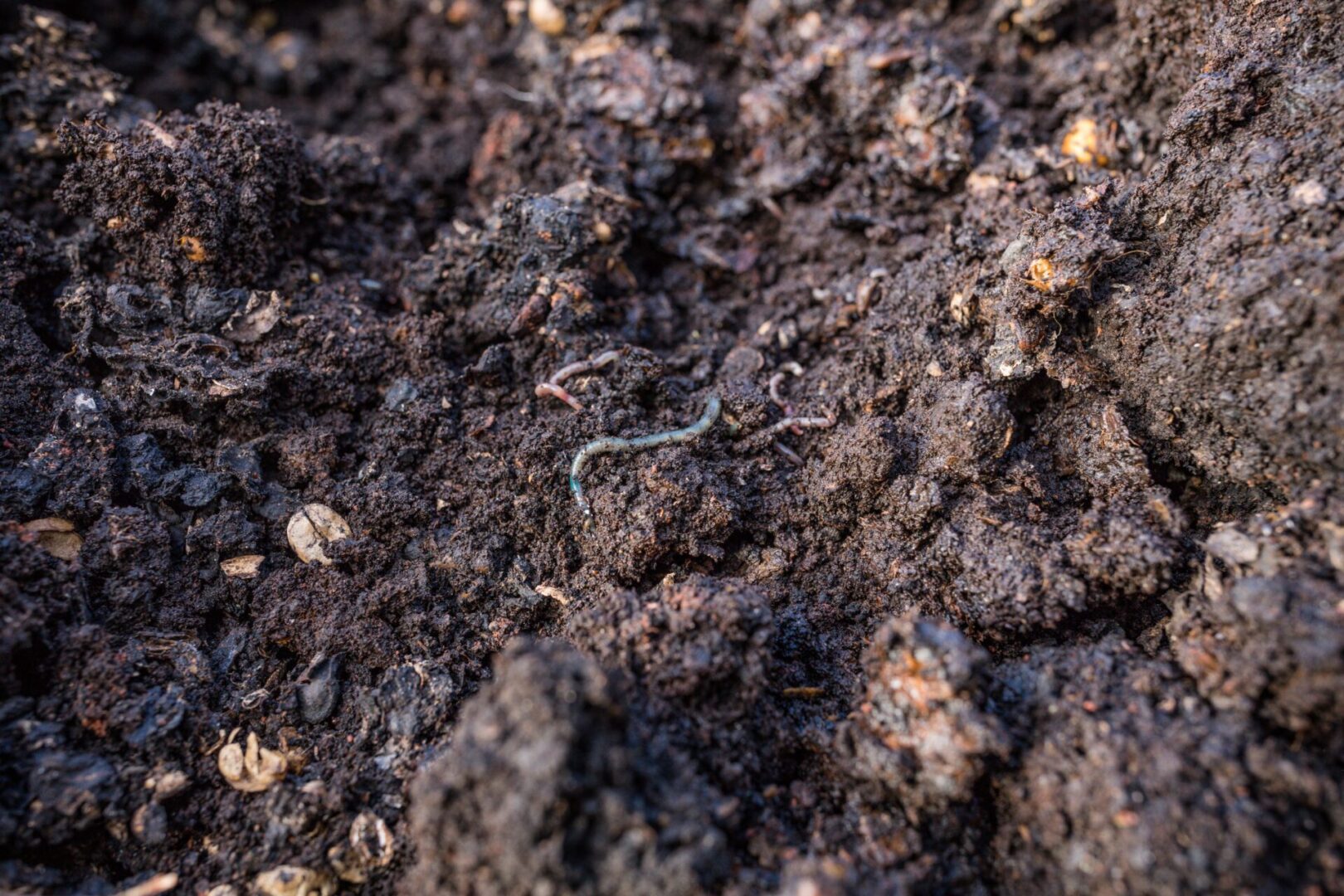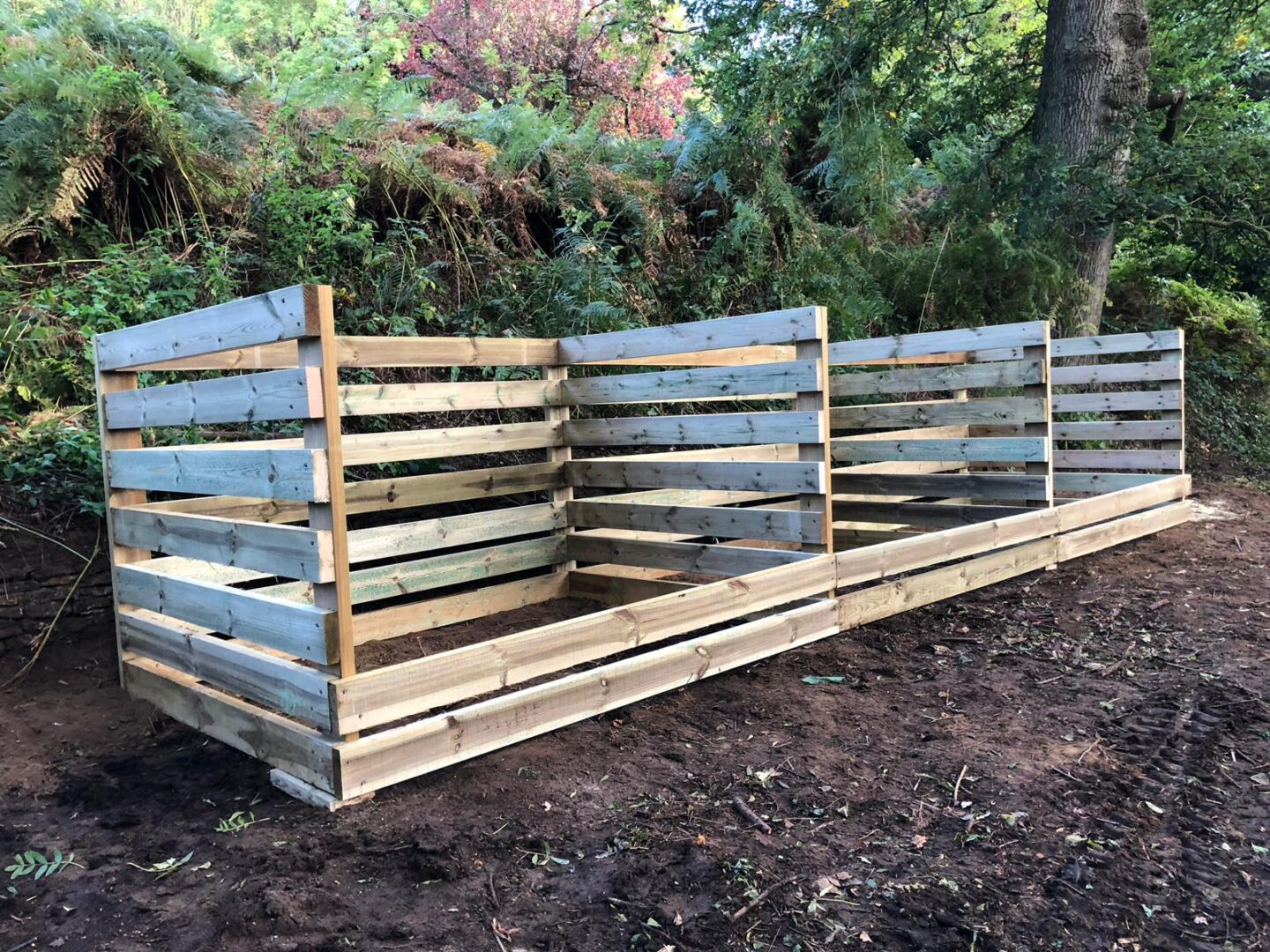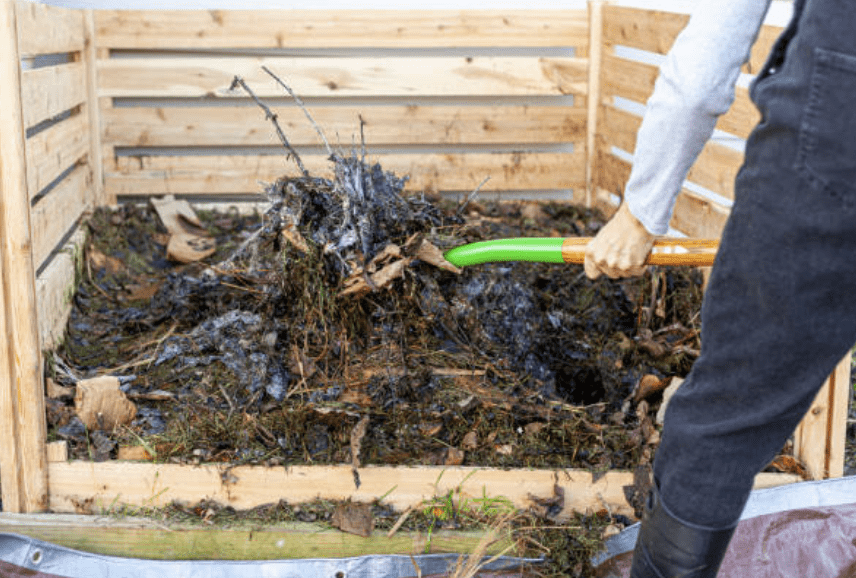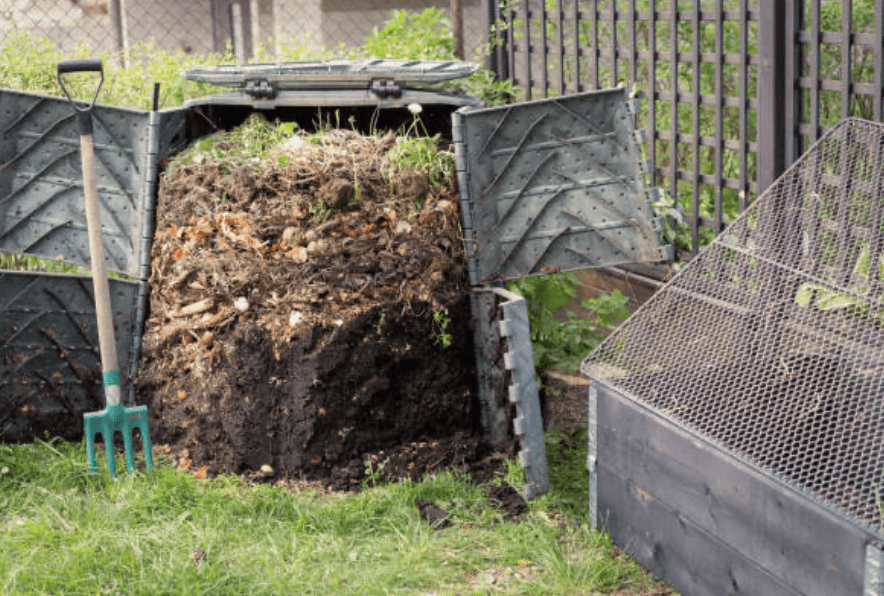
Aye's Advice: A beginner's guide to composting in your garden
When you’re designing your garden, there's a practice that stands out for its simplicity, yet profound impact on the environment and your garden's health. Composting.
Composting is a sustainable and eco-friendly way to recycle organic waste, enrich your soil, and cultivate a thriving garden. By embracing composting you can elevate your gardening experience and contribute to a greener, healthier planet. In this guide, we'll explore the art of composting and how you can easily integrate it into your garden.
Understanding the basics of composting
Composting is the natural process of recycling organic materials into a nutrient-rich soil conditioner. By harnessing the power of decomposition, you can transform kitchen and garden waste into a valuable resource for your plants.
The key ingredients for successful composting include:
- Greens: Nitrogen-rich materials such as kitchen scraps (fruit and vegetable peelings, coffee grounds), fresh garden waste (lawn clippings, green plant trimmings), and manure.
- Browns: Carbon-rich materials like dry leaves, straw, cardboard, and newspaper.
- Air: Aeration is crucial for composting. Turn the compost regularly to introduce oxygen, promoting the growth of beneficial microorganisms.
- Water: Maintain a damp, but not waterlogged, environment. Adequate moisture supports the decomposition process.

Choosing the right composting system
Before getting stuck into the composting process, you’ll need to choose the best composting system to suit your garden and lifestyle. There are several options:
- Compost bins: Ideal for smaller gardens, compost bins are convenient and tidy. They keep your compost contained and can be easily turned for aeration.
- Compost piles: Compost piles are a more informal option for larger gardens that have room. They require a bit more space and maintenance but can accommodate larger volumes of waste, usually contained in a bay or other structure.
- Tumblers: Tumblers are perfect for those with limited time or mobility. These rotating bins expedite the composting process and require minimal effort.
- Vermicomposting (Worm Bins): Worms are nature's composting champions. Vermicomposting bins are compact, odourless, and can be kept indoors, making them an excellent choice for urban gardeners.
- Hot composting: Hot composting is a highly efficient method of breaking down organic matter into nutrient-rich compost through accelerated microbial activity. Unlike traditional composting, which takes several months to yield usable compost, hot composting can produce results in just a few weeks. The HOTBIN system is a popular hot composting system that we have seen some of our clients use.

Composting Do's and Don'ts
To ensure a successful composting journey, follow these essential do's and don'ts:
DO:
- Balance greens and browns: Achieve a balanced mix of nitrogen-rich greens and carbon-rich browns for optimal decomposition.
- Chop and shred: Break down larger materials into smaller pieces to accelerate the composting process.
- Maintain moisture: Keep your compost moist, resembling a wrung-out sponge. Watering during dry spells is essential.
- Turn regularly: Introduce oxygen by turning your compost regularly. This encourages the growth of beneficial bacteria.
- Patience is a virtue! Composting takes time. Be patient, and you'll be rewarded with rich, crumbly compost.
DON’T:
- Avoid meat and dairy: Never add meat, dairy, and oily foods to your compost, as these can attract pests and slow down the composting process.
- Say no to pet waste: Pet waste can contain harmful pathogens. Exclude it from your compost to ensure the safety of your plants.
- Limit citrus and onions: While these can be composted in moderation, too much citrus and onion waste can affect the pH balance of your compost.
- Don’t forget to skip aeration: Regular turning is crucial. Avoid neglecting your compost, as this can lead to a smelly, anaerobic environment.

The benefits of composting for your garden
Even the smallest garden produces waste, as do our kitchens, so it’s great to know that this can be composted and used back in the garden!
- Nutrient-rich soil: Compost acts as a natural fertilizer, enhancing soil fertility and promoting healthy plant growth. This is especially beneficial for nutrient-depleted soils.
- Water retention: Compost improves soil structure, helping it retain water more efficiently. This is particularly advantageous during the drier months, reducing the need for excessive watering.
- Reduced landfill waste: By composting kitchen and garden waste, you're diverting a significant amount of material from landfills, reducing your environmental impact.
- Carbon footprint reduction: Composting at home reduces the need for waste transportation and the energy associated with landfill management, contributing to a lower carbon footprint.
- Biodiversity boost: A healthy compost pile teems with microscopic life. These beneficial organisms enrich the soil and create a thriving ecosystem for your plants.
- Save money: By making and using your own compost, you reduce the need to buy composts and mulches produced commercially. This saves you money and uses fewer resources too.
How to get started with composting
- Collect kitchen waste: Set up a small bin in your kitchen to collect fruit and vegetable peelings, coffee grounds, and eggshells. Empty this into your compost bin or pile regularly.
- Gather garden waste: As you maintain your garden, collect green waste like grass clippings, plant trimmings, and fallen leaves. These materials are perfect for composting.
- Layering greens and browns: Create a “compost lasagna” by layering greens and browns. This ensures a balanced mix and encourages efficient decomposition.
- Turning and monitoring: Regularly turn your compost with a pitchfork or compost aerator to introduce oxygen. Monitor the moisture level and make adjustments as needed.
- Harvest your compost: After a few months, your compost will be ready for use. Harvest the mature compost from the bottom of your bin or pile and spread it around your garden.
Embarking on the journey of composting is a rewarding and environmentally conscious decision for any gardener. By embracing this sustainable practice, you’ll contribute to the health of your garden, reduce waste, and play a part in creating a more sustainable future. Composting is a small act with significant impacts, proving that, in gardening, the smallest actions can lead to the most vibrant results.
If you want to add a composting solution to your garden design, our experienced landscaping professionals can help you choose the best set-up and location. Contact us today to start a conversation about your landscaping ideas for your property.

